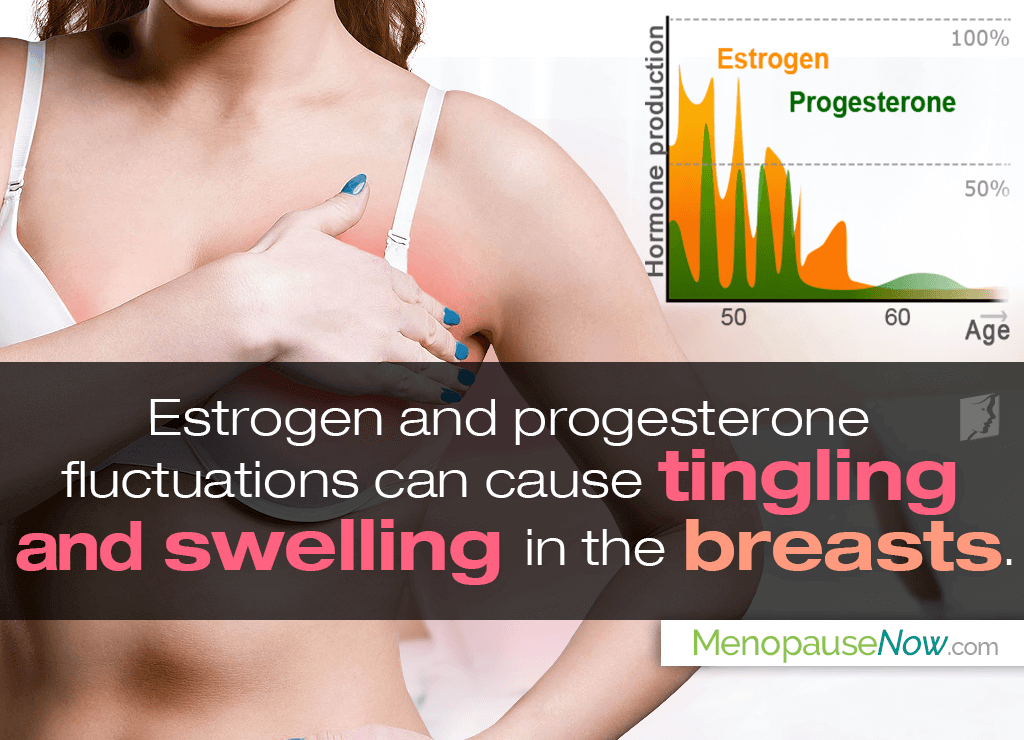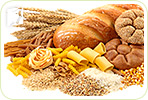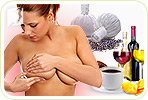Breast pain affects as many as 70 percent of women at some point during their lives, with tingling and swelling being two uncomfortable sensations that can occur as a result. Continue reading to learn more about tingling and swollen breasts during menopause so that you can find the relief you deserve.
Causes of Tingling and Swollen Breasts in Menopause
Breast tingling is a characteristic of breast pain that occurs during times of significant hormonal fluctuations, such as during pregnancy and menopause.
Both estrogen and progesterone have stimulating effects on the size and number of milk ducts and milk glands.
These fluctuations can cause various symptoms, like inflammation, soreness, pain, sensitivity, tingling, and swelling in the breast and armpit area.
Although it may be concerning to experience swollen and tingling breasts, keep in mind that it is common to experience these sensations during this transition out of fertile years.
Breast pain alone is rarely a sign of breast cancer. However, it is recommended to regularly self-examine your breast and undergo annual mammograms for your well-being and peace of mind.
Other causes of breast pain include infection, benign cysts, medication use, fatty acid imbalance, and breast surgery, among others.
Treatment Options
Natural and effective breast pain treatments for menopausal women start by promoting the use of non-invasive measures to alleviate discomforts before resorting to pharmaceuticals.
Initially, women should start by maintaining a healthy diet rich in phytoestrogens, plant-based estrogens that allay the hormonal imbalance in the body, as well as natural diuretics to evade water retention.
Also, menopausal women should strive to partake in regular exercise for at least 30 minutes a day, five days a week. A sedentary lifestyle can increase the severity of breast pain.
Moreover, self-care techniques and healthy habits are just as important to evade breast pain. Women should wear a properly fitted, supportive bras while exercising, apply warm or cold compresses, and practice self-massage. Some women find that alternative treatments such as acupuncture help relieve breast pain and tenderness as well.
If breast pain is lowering your quality of life, it is important to see your doctor. The key to bosom relief starts with your initiative.
Sources
- Harvard Health Publishing. (2018). Breast pain: Not just a premenopausal complaint. Retrieved April 24, 2019, from https://www.health.harvard.edu/pain/breast-pain-not-just-a-premenopausal-complaint
- Mayo Clinic. (2019). Breast pain: Symptoms & causes. Retrieved April 24, 2019, from https://www.mayoclinic.org/diseases-conditions/breast-pain/symptoms-causes/syc-20350423
- MedStar Georgetown University Hospital. (n.d.). Benign Breast Conditions. Retrieved April 24, 2019, from https://www.medstargeorgetown.org/our-services/cancer-care/breast-cancer/conditions/benign-breast-conditions/




